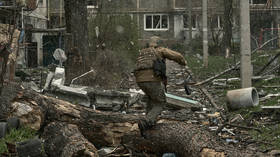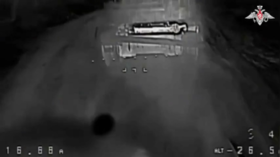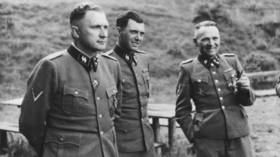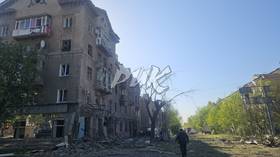Pfizer to test Covid booster dose on infants, young kids
Pfizer will start testing Covid-19 vaccine booster doses in children aged six months to five years old after finding that its lower-dose shot may not provide enough protection in one age group.
The pharmaceutical giant announced on Thursday that it would start testing a third dose on young children “at least two months after the second dose” in an effort “to provide high levels of protection in this young age group.”
Explaining its decision, the company cited clinical data showing that the smallest ‘baby’ dose administered to children under five does not appear to be effective in protecting those in the 2-to-5 age bracket.
Vaccine doses vary across different age groups involved in the study. Children aged 5-12 received two 10-microgram doses – one-third of the adult 30-microgram dose. Children younger than five, including infants, were vaccinated with three-microgram shots.
Pfizer claimed that no safety concerns were identified during the trial, and said it would seek emergency authorization of the new three-dose vaccination regimen for young children next year, provided the three-dose study is a success.
The announcement comes after the US Centers for Disease Control and Prevention (CDC) this week reported eight cases of myocarditis, a potentially deadly heart inflammation, in children aged 5-11 years old after they received the Pfizer vaccine.
As of November, everyone in the US aged five and above is eligible to be vaccinated for Covid-19. Americans who are at least 16 are also eligible for a Pfizer booster, while those 18 and above can receive a booster from Moderna or Johnson & Johnson.













